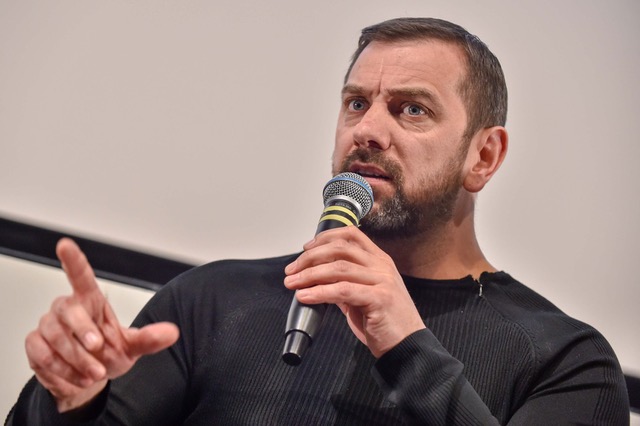THE West Belfast director of the groundbreaking ‘Unquiet Graves’ documentary has dedicated the film’s prestigious Royal Television Society (RTS) Award nomination to the families of the Glenanne Gang’s victims.
The feature length film, which investigates the role the British state played in the murder of over 120 civilians in Counties Armagh and Tyrone from July 1972 to 1978, has been nominated in the documentary category for November 7 awards.
Speaking to the Daily Belfast, Director, Seán Murray, said that while it is “humbling to be recognised” for the work, the award was a “recognition” of the families.
“The film was mostly the work of volunteers and based on the research of nearly 20 years by the Pat Finucane Centre and Justice for the Forgotten – it was a major collaboration and it’s great to be recognised for it,” he said.
“But I will always talk about the time when I met the families four years ago in Benburb, and what I had said is that we would try to get their voices out to an international audience. I think that an awards ceremony like this is a big step in doing that.
“We’re waiting on it being screened on RTÉ, and it’s also going to be on satellite TV in six different languages from December.
“All of our work has come to fruition. When we get this type of recognition it’s for the families, so it is gratifying.”
Mr Murray said that the bravery of families featured in recent films about Troubles atrocities had changed the “mainstream” narrative about our conflict.
“There are three films that have broken the ‘few bad apples’ narrative; No Stone Unturned, Unquiet Graves and the Ballymurphy Precedent,” he stated.
“Those films have reshaped the narrative around the conflict.”
He added: “The ‘few bad apples’ theory that the BBC liked to push in the past is being disproven through these documentaries. These three seminal pieces have really led the charge.”
Asked what winning the RTS Award would mean, Mr Murray added: “To be recognised is good enough for us.
“As I say it’s for the families. They can now say, after years when people tried to marginalise their voices that, finally, they are in the mainstream now and they are not being withheld anymore.”






